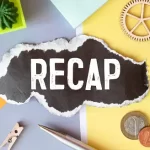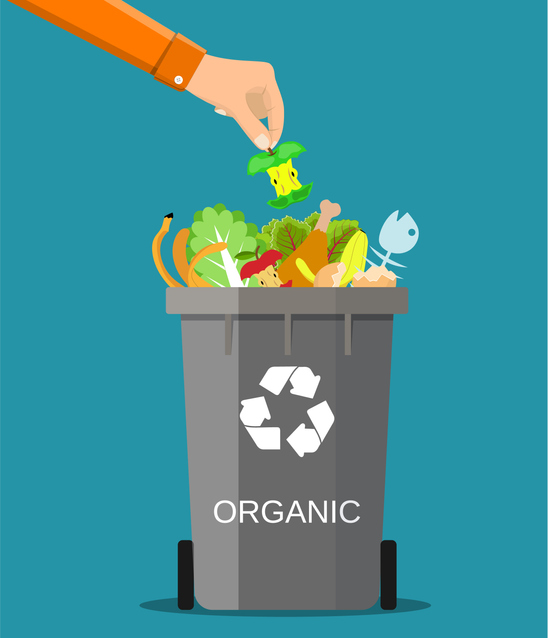The Arcadia Rotary Club welcomed our guest speaker, Kevin Mattson, from Waste Management. Mr. Mattson is known around WM as the organic guru.
The issue of recycling organic waste is a hot topic. Not only locally, but also statewide and nationally. What do we do with it? How do we store it at home? Won’t it stink up the house and or the trash cans? These were just some of the questions that given to Kevin Mattson from Waste Management during his presentation. First let’s take a look at what is organic waste.
The majority of Organic waste comes in three forms:
- Yard waste, yes, the green waste that comes from your yard. We are very familiar with what goes in the “Green” cans, grass clippings, leaves, pruning’s and garden waste.
- Food waste, pre and post-consumer food waste. Plate scrapings and packaged food materials. These are from residential, grocery store, restaurants, industrial generators and institutions.
- Biosolids, by-products of organic waste digested and undigested.
For this article, I will focus on the first two types of organic waste. For years the residential and industrial industries handled their food waste much the same way. They threw in the “Black” trash cans. No harm no fuss, right. Well along came a law, SB 1383, that change the game of how organic waste is handled and treated. This law is overseen by CalRecycle, a state agency responsible for reducing the amount of organic waste going into our landfills that directly affect climate-change.
An important part of the California Department of Resources Recycling and Recovery’s mission is to increase the diversion of organic materials away from landfills and toward the production of value-added products such as compost, fertilizers, and biofuels.
Organic waste accounts for more than a third of the material in California’s waste stream. Greenhouse gas emissions caused by the decomposition of organic material in landfills contribute to global climate change. Reducing the amount of organic material sent to landfills is fundamental to ARB’s Short Lived Climate Pollutant strategy, and is one of California’s strategies for reaching the statewide 75 percent recycling goal. Collecting and processing organic materials, particularly food which mandates such efforts beginning April 1, 2016. (1)
SB 1383 will revolutionize how we dispose of organic materials in California by requiring residential organics waste recycling in nearly every jurisdiction. The measure ultimately requires a 75 percent reduction of the level of statewide disposal of organic waste by 2025, based on levels from 2014.
I know, that’s a lot of information, right. Well, we all knew that this was coming. Waste Management has been doing it’s due diligence to getting the word out to both the residential and industrial industries. We just didn’t know how the process was going to be implemented. We now know that the food waste must be separated and placed in the green waste cans along with the yard waste. Okay, okay… that process sounds like a smelly bad idea and adding another waste can is not an option. But there are options that you can implement to help reduce the volume of organic waste that is produced in the residential areas of Arcadia. You can go into your garage and bring out that old compost container and start making your own compost to add to your fruit and vegetable gardens to watch them bloom like never before. If you don’t have that green thumb you can just add the waste into your garbage disposal. Before you do that you better check to see if you disposal can handle the increased volume of organic trash. Finally, simply place your organic waste between your yard waste the day before it is actually picked up. The green trash can will continue to have that fresh cut grass smell.
Thank you to Kevin Mattson from Waste Management, for taking time to share this important change in our handling of our recycle waste. As I stated earlier, we all knew that this was coming and the start date that this change for the residential area of Arcadia is January 1, 2022.
David Muse
October
- Organic Materials Management – CalRecycle

 Teri Muse Walk-a-Thon for mental health awareness
Teri Muse Walk-a-Thon for mental health awareness  10th Anniversary of The Field of Honor
10th Anniversary of The Field of Honor  Arcadia Rotary’s Installation of it’s 98th President
Arcadia Rotary’s Installation of it’s 98th President  Let’s Recap! 6/21/24
Let’s Recap! 6/21/24 